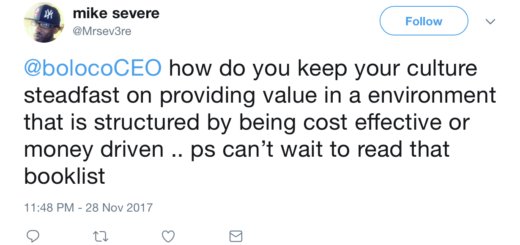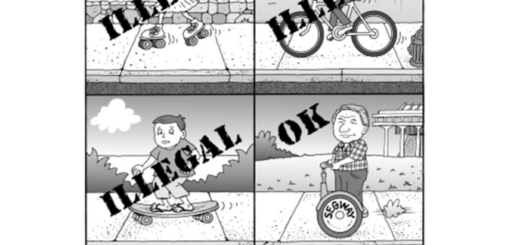In Support of the Lister and Professional Assessor Model
 In January of last year, I decided to run for one of the open Selectboard positions. My goal in doing so was not to win necessarily, but to see if I could do what I see so little of in this country… stay positive, be respectful of opponents, listen to opposing points of view as well as to those who with whom I am already aligned. Generally I wanted to see if I could have any impact at all on the tone of politics on a local level.
In January of last year, I decided to run for one of the open Selectboard positions. My goal in doing so was not to win necessarily, but to see if I could do what I see so little of in this country… stay positive, be respectful of opponents, listen to opposing points of view as well as to those who with whom I am already aligned. Generally I wanted to see if I could have any impact at all on the tone of politics on a local level.
My first and perhaps only real contribution since being elected in March was leading the effort to adopt a Vision and set of Guiding Principles by which we would behave. And, we hoped, perhaps appointed committees, town employees, and even “regular ol’ town folk” might consider them too.
Lately I’ve shared with a few people that I feel at times that I’ve failed on this effort. Selectboard meetings and Listserve posts have an unacceptable amount of distrust and skepticism. We (the town, the Selectboard, Committees, etc.) have been stopped in our tracks multiple times for issues that distracted from what I’ve always believed to be our main, often unstated and rarely written objective… to help make decisions and adjust or create policy that leave Norwich better off in 50 years than it is today. Naively perhaps, I still believe that the way to achieve that always starts with how we treat each other.
These past few days, I’ve had my eyes open to why such distrust might exists, and perhaps even be warranted. Had I personally been subject to the tactics I’m seeing happen right in front of me for years and even decades as many of our neighbors claim, I’d probably be jaded and negative too.
In the fall, there was some legitimate brouhaha about the relationship between the Listers and the hired assessor for the Town of Norwich. For most of the town’s history, we’ve relied on Listers to prepare what’s called a Grand List and to value people’s homes… a great deal of responsibility to be sure. In the last few years, a professional assessor was hired to do a large amount of the work traditionally completed by Listers due to questionable results over a sustained period of time. Instead of reporting to the Listers, however, the assessor reported to the Town Manager, thereby creating understandable tension and confusion for the Listers, rendering them even less effective than before. In addition, as has been pointed out on a number of occasions public, the arrangement is in all likelihood illegal… the reporting structure called for in the current Assessor contract is out of bounds per statute.
Finally, in a meeting this past November, I was so relieved and even surprised when the Listers and the Assessor showed up and announced to the Selectboard that they had found a compromise and would work together for the near future. Without the Selectboard’s involvement, a solution had been found. Perfect, I remember thinking.
But it wasn’t going to hold. Between a meeting in mid December and tonight, there was a quiet effort (again, this is required by statute… no more than 2 members of the Board can communicate on an issue without warning a public meeting). I was stunned, and the letter penned below shared before the Selectboard meeting conveys my disappointment. It was a tough meeting. My emotions were trying to take the reins early on. I think I pulled it together and in the end the effort to remove the Lister office, for now, was dropped. I suppose it could be petitioned by someone, but that would be so extreme. I sincerely hope that doesn’t happen.
The letter that follows was in somewhat direct response to the letter that follows below mine published in the Valley News earlier this morning.
Statement to Friends and Neighbors of Norwich:
I do not support supplanting or replacing the office of Lister at this time.
This past fall, there were legitimate conflicts between the Listers and the professional Assessor for the Town of Norwich.
Thankfully, during a Selectboard meeting this past November, I and others were relieved and even surprised when the Listers and the Assessor showed up and announced they had found a path forward and would work together for the near future. Without the Selectboard’s involvement, a solution had been found.
During the holidays, unbeknownst to the majority of the Selectboard, a proposal was in the works to reverse this détente and instead abolish the office of the Lister altogether. With a number of discussions having taken place these past few days, I strongly support the continuation of the use of a professional Assessor as well as the Lister office as currently structured, for the following reasons:
- With an agreement to try to make the current structure work only two months old, not nearly enough time has passed to let the parties demonstrate either an effective or ineffective working situation.
- The results of the Assessor/Lister combination have been strong in past few years. This is not an emergency.
- To remove the Lister office would essentially abolisha tradition of democratic election by the people of Norwich of a few of their fellow residents to assess the values of properties in Town.
- Listers are directly answerable to the voters of the Town of Norwich. Without the Listers, the Assessors will not answer to any elected officials, let alone to the townspeople.
- Listers represent some of the core values of our small town and our small state held most dear by many citizens — governance that is small, local, and responsive. To quote one, “we value that our town is governed by people just like any of us, residents of our town. We value that the people we choose to govern for us also answer to us — in public meetings, on the phone, or at the dump. Once we lose local self-governance, we’ll have lost an intangible of great value, one that can’t be bought with bureaucrats, experts, and consultants.”
Finally, and perhaps most importantly, I vehemently disagree with the tactics and strategy by which this has been brought to the public’s and the majority of the Selectboard’s attention. While by statute it may be permitted, it does not build trust amongst our own elected officials let alone the trust the public will have in its elected officials.
I look forward to seeing how the Listers and the current or future professional Assessors manage these critical responsibilities, and stand ready to discuss it openly from time-to-time in the coming year and beyond.
John Pepper
Statement to the Valley News 9 January 2018
The primary reason that I support replacing the office of lister with an appointed professional assessor is the ability of the town to oversee, effectively, the quality of the work required to develop a grand list each year.
Metrics
There are four primary metrics that measure the quality of the work. They are:
- CLA, which measures how accurately property assessments track market value,
- COD, which measures how precisely this occurs,
- PRD, which measures the degree to which assessments are biased towards higher or lower value properties, and
- Appeals, which measure whether property owners feel that they were treated fairly.
Oversight
These metrics are all but unknown to most voters entering the voting booth to vote for a lister each year. So, it’s difficult for voters to make an informed decision about the effectiveness of the board of listers or the contribution of a given candidate standing for office.
Whether by contract or as a town employee, selectboard oversight through the town manager of the quality of the assessor’s work according to CLA, COD, PRD and appeals is straightforward and much more effective and direct than voter oversight of elected listers.
Qualifications
Listers are not professionally trained. Instead, they obtain their knowledge as citizen volunteers through periodic seminars and time served in office.
A professional assessor is trained and skilled in property assessment, which employees at least one of three techniques for a given property: the cost approach, the market data approach, or the income approach (for a commercial property)—each of which is highly technical.
Controls
There is frequently at most only one candidate running in a given year for the open seat on the board of listers. With only one candidate there is no ability for the voters to choose who is most qualified or to opt out of choosing an under-qualified or poorly performing lister. The only way to dislodge an incumbent under-performing public official is for another candidate to run for the same office.
Oversight of a contractor’s performance is straightforward, according to the terms of a selectboard-approved contract, and is a role of the town manager. Likewise, an employee’s effectiveness is according to a performance description. An under-performing employee may not receive a step increase or may be removed from the position.




Recent Comments